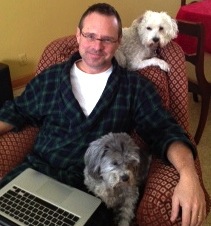A person who is terminally ill commonly passes through a series of stages marked by physical and emotional changes that are recognizable to health care professionals. One of the last stages may be referred to as “Actively Dying.” As its name implies, this stage can be physically and emotionally active and, for a caregiver, very difficult. Inviting in someone supportive who has been through this stage before can be helpful.
In contrast, the stage after Actively Dying is calm; eerily quiet, simple. For caregivers, it feels like a long exhale after hours or days of gasping for air. Our loved one is still alive, just resting now before embarking on what many believe is the final journey home.
“This is it,” the nurse tells us, in a tone so tender and kind, it belies the words she is saying. “He won’t wake up now, but he can hear you. You can still give him the comfort and love you have been providing all along.”
A shiver ran through the room, and she continued, “If you see two vertical lines on his forehead, a number eleven, you can give him pain medication sooner than scheduled. This is about comfort now. You did a good job. You are all doing such a good job.”
For a Moment
 by Penny Moore
by Penny Moore
For a moment
When I sink into the knowing
I feel you breath with His breath
The wind lifting ribbons
We untie ourselves without knowing
I like to hold you passing through
The ribbons gently waving on
The palm of my hand joining
Our passing on One to another
A moment never changes
When you touch it that way







